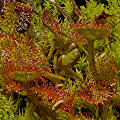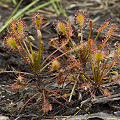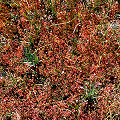Q: Carnivorous plants of Europe--exciting Pinguicula!
A: In Europe,
the native carnivorous plants are represented by Aldrovanda, Drosera,
Drosophyllum, Pinguicula, and Utricularia.
The only endemic European carnivorous plants are in the genus Pinguicula.
The countries with the most carnivorous species are France and Spain (about 17 species each), meanwhile in terms of genus
diversity, Hungary, Poland, Romania, Russia, and Spain lead with four genera each.
In some cases the classification of a country as "European" or "Asian" is a matter of perspective. I
treat the borderline countries (Georgia, Azerbaijan,
Armenia, Kazakhstan, and Russia) on both this and the
carnivorous plants of Asia page; Cyprus and Turkey are treated as being Asian.
I observe political borders and treat Greenland as European.
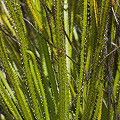 Drosophyllum
Drosophyllum
lusitanicum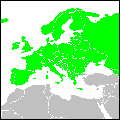 Europe
Europe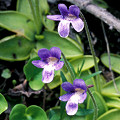 Pinguicula
Pinguicula
macroceras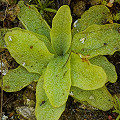 Pinguicula
Pinguicula
longifolia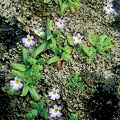 Pinguicula
Pinguicula
hirtiflora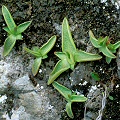 Pinguicula
Pinguicula
fiorii
Aldrovanda
Historically Aldrovanda vesiculosa
was found in many parts of Europe; an inventory of countries from the late 1800s includes France, Switzerland,
Germany, Poland, Czechoslovakia, Austria, Hungary, Romania, Belarus, Baltic, Ukraine, Russia, Italy, Yugoslavia, and Bulgaria.
Currently it is only found in
Hungary, Poland, Romania, Yugoslavia, Ukraine, and Russia. (Introduced populations occur in Switzerland.) Its broad decline in
range and number of sites is due to human activity--habitat destruction and degradation.
Drosophyllum
Drosophyllum lusitanicum is almost a European endemic, as the vast number
of sites for this plant are in Portugal and Spain. However, a few plants are also found in Morocco.
Pinguicula
Europe's big claim to fame is its interesting set of Pinguicula species. While not as large as
the list of species in México, it is still impressive.
Drosera
The genus Drosera is represented by only three wide-ranging species, none of which are European
endemics:
- D. anglica
- D. intermedia
- D. rotundifolia
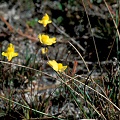 Utricularia
Utricularia
subulata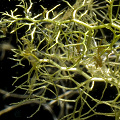 Utricularia
Utricularia
stygia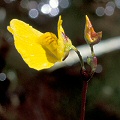 Utricularia
Utricularia
ochroleuca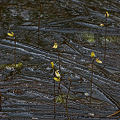 Utricularia
Utricularia
minor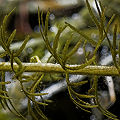 Utricularia
Utricularia
intermedia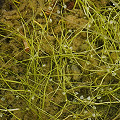 Utricularia
Utricularia
gibba
Utricularia
All the (approximately 10) species in Europe are from the genus section Utricularia, except
for U. subulata from section Setiscapella.
The species U. bremii is almost endemic, except for the occurrence of this plant in Japan.
Page citations: Ansaldi, M., and Casper, J. 2009; Breckpot, C. 1997; Casper, J. 1966; Correia, E. & Freitas, H. 2002; Lowrie, A., et al. 2017b; Rice, B.A. 2006a; Roccia, A., et al. 2016; Schlauer, J. 2002; Taylor, P. 1989.
